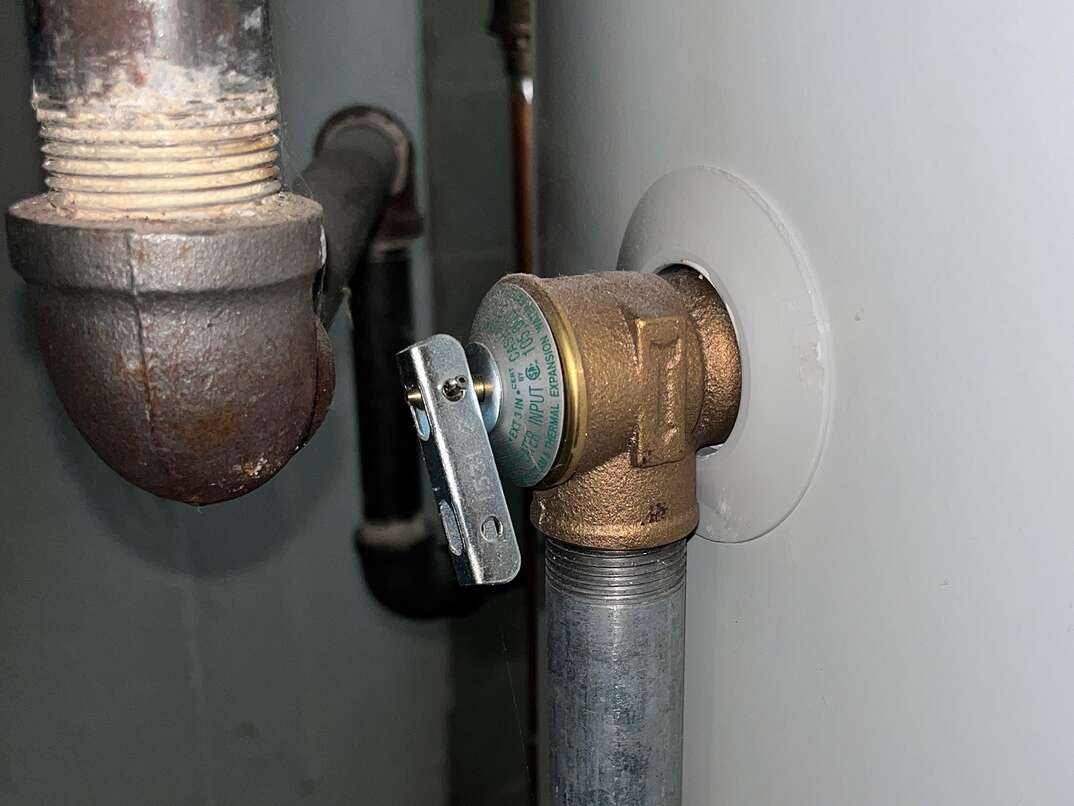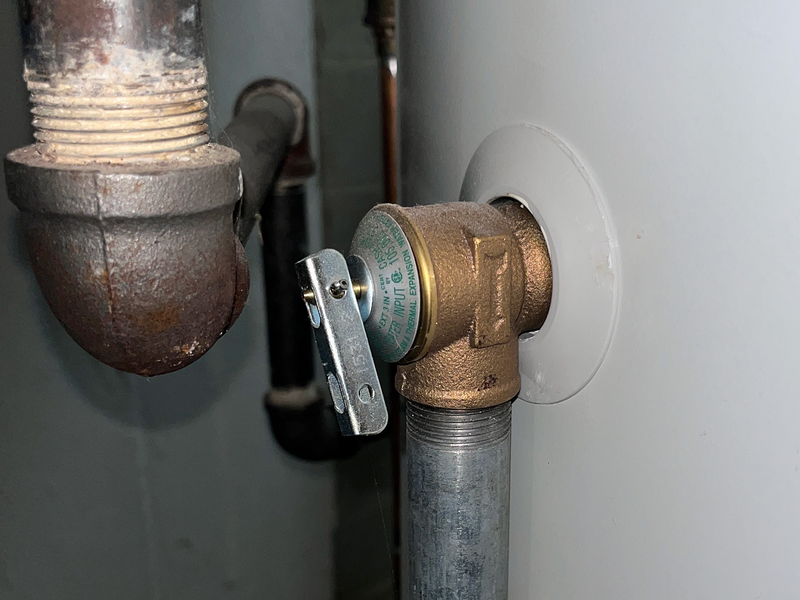- AppliancesElectriciansHVACLandscapingLocksmithPest ControlPlumbingRenovationRoofingT V RepairAll Home Improvement
- Car AccidentClass ActionCorporate LawCriminal DefenseDivorce LawEmployment LawFamily LawFinancial LawLegal AidMedical Injury LawyersMedical MalpracticeReal Estate LawWater Fire RestorationAll Legal
- InvestmentRetirementAll Finance
- Animal InsuranceAutoGeneral InsuranceHealth PolicyHome RentersAll Insurance
- DentalHealth SpecialistsAll Medical
- Animal CareVeterinaryAll Pets
- Auto GlassTowingAll Automotive
Why Is My Boiler's Blow-Off Valve Leaking?


Although an occasional droplet of water around your heating system is normal, a boiler blow-off valve leak can signal a serious problem, so you shouldn’t ignore it.
Read More Home Improvement Articles
If you're hesitant to call in a professional, you may be able to diagnose and fix some issues simply and safely. Here are a few things you should know before you grab your toolbox.
The blow-off valve releases air from your boiler so pressure doesn’t build up, reducing the risk of an explosion and protecting tanks, pipes and other sensitive components from damage caused by over-pressurization. They can also minimize the accumulation of sediment to help keep your equipment running properly.
Boiler blow-off valves, which are sometimes referred to as pressure-relief valves, open when your heating system reaches unsafe pressures. They close as the pressure drops, shutting completely once the pressure reaches an acceptable level.
Why Is My Boiler’s Blow-Off Valve Leaking?
Boiler blow-off valves may leak a few droplets of water when they release pressure during normal operation. However, if you’re seeing a more significant leak, the cause likely falls into one of two categories: blow-off valve problems or boiler pressure issues.
Blow-Off Valve Problems
Depending on the type of unit you have, a boiler can last 10 to 15 years or longer. However, components, such as valves, may begin to wear down long before then. If a boiler valve is defective, old or improperly installed, it can malfunction, leading to leaks — or worse, pressure problems. Additionally, if these valves aren't regularly maintained, they can rust or accumulate sediment, resulting in leaks or boiler breakdowns.
Boiler Pressure Issues
If there’s too much pressure inside your boiler system, the blow-off valve may leak. This can happen for several common reasons:
- Fill valve malfunction: The fill valve should permit only 12 psi into the boiler. If this component malfunctions and the pressure increases to 30 psi or higher, a leak can occur.
- Leaking or waterlogged expansion tank: The expansion tank, which lets water in your heating system expand, can become waterlogged over time. When this happens, water can no longer expand, and the blow-off valve begins releasing pressure.
- Failing aquastat or aquastat relay: The aquastat, which is required by law in most areas, helps control the temperature in your heating system. If it malfunctions, it can result in the boiler temperature increasing to dangerous levels, causing the blow-off valve to leak.
- Holes in the hot water coil: Even small holes in the hot water coil can cause water to leak into your boiler, resulting in unsafe pressure levels and spillage from the blow-off valve.
- High temperature settings: If the temperature setting in your boiler is too high, it can create steam in the system, increasing the pressure, which may result in a leaking valve.
More Related Articles:
- How Much Does a Home Inspection Cost?
- 4 Tips for Hiring a General Contractor for Your Next Remodeling Project
- Should You Hire a Contractor or a Handyman?
- 5 Things to Look For When You're Hiring an Electrician
- What to Look for When Hiring an Exterminator
Before you can decide whether to fix the problem yourself, you’ll first need to determine what's wrong. Although an inexperienced homeowner may not have the knowledge or training to diagnose a boiler problem, you may be able to see if a rusty or worn valve is the problem with a simple visual and mechanical inspection.
To do so, locate the blow-off valve, which is usually found on the top or side of the boiler, and check it for wear or corrosion, making sure to inspect the connection between the valve and the tank. You can also test the valve’s functionality by moving it up and down several times. If the valve is working properly, the movement should raise the attached brass stem, resulting in a gurgling sound and flow of hot water from the drainpipe. If no water is released or there’s just a trickle, your valve probably needs to be replaced.
Replacing the Valve
For a handy homeowner, replacing a boiler blow-off valve can be done easily by following a few simple steps:
1. Turn off the boiler at the main breaker.
2. Shut off the water.
3. Drain the tank by connecting a hose to the drain valve at its base.
4. Unscrew and remove the faulty valve and connected discharge tube.
5. Install the new valve and discharge tube.
6. Slowly turn the water back on to fill the tank.
7. Turn the boiler back on at the main breaker.
When Should I Call a Pro?
When you attempt a boiler repair, you’ll often have to handle extremely hot water, and safety should always come first. Individuals with no plumbing experience should call a professional rather than risk injury to themselves or damage to the heating system. If you suspect the leak is caused by a systemic pressure issue, or if the pressure gauge is in the red, contact a plumber right away.
Elocal Editorial Content is for educational and entertainment purposes only. Editorial Content should not be used as a substitute for advice from a licensed professional in your state reviewing your issue. Systems, equipment, issues and circumstances vary. Follow the manufacturer's safety precautions. The opinions, beliefs and viewpoints expressed by the eLocal Editorial Team and other third-party content providers do not necessarily reflect the opinions, beliefs and viewpoints of eLocal or its affiliate companies. Use of the Blog is subject to the
Website Terms and Conditions.The eLocal Editorial Team operates independently of eLocal USA's marketing and sales decisions.



